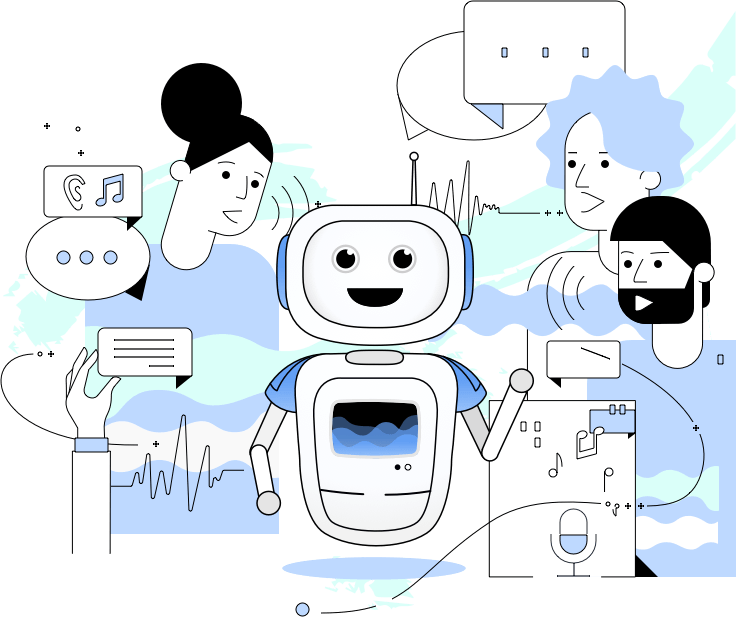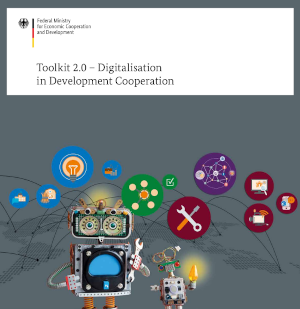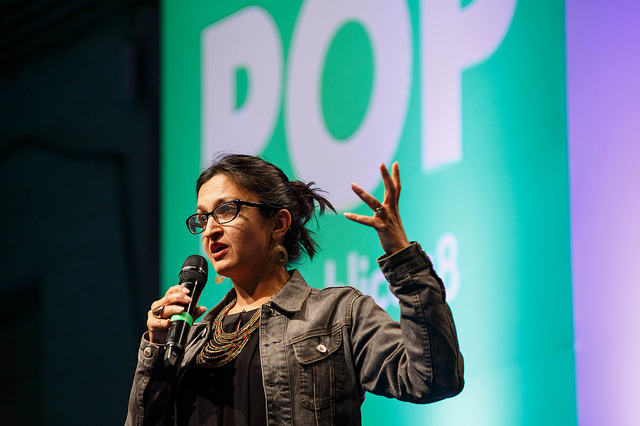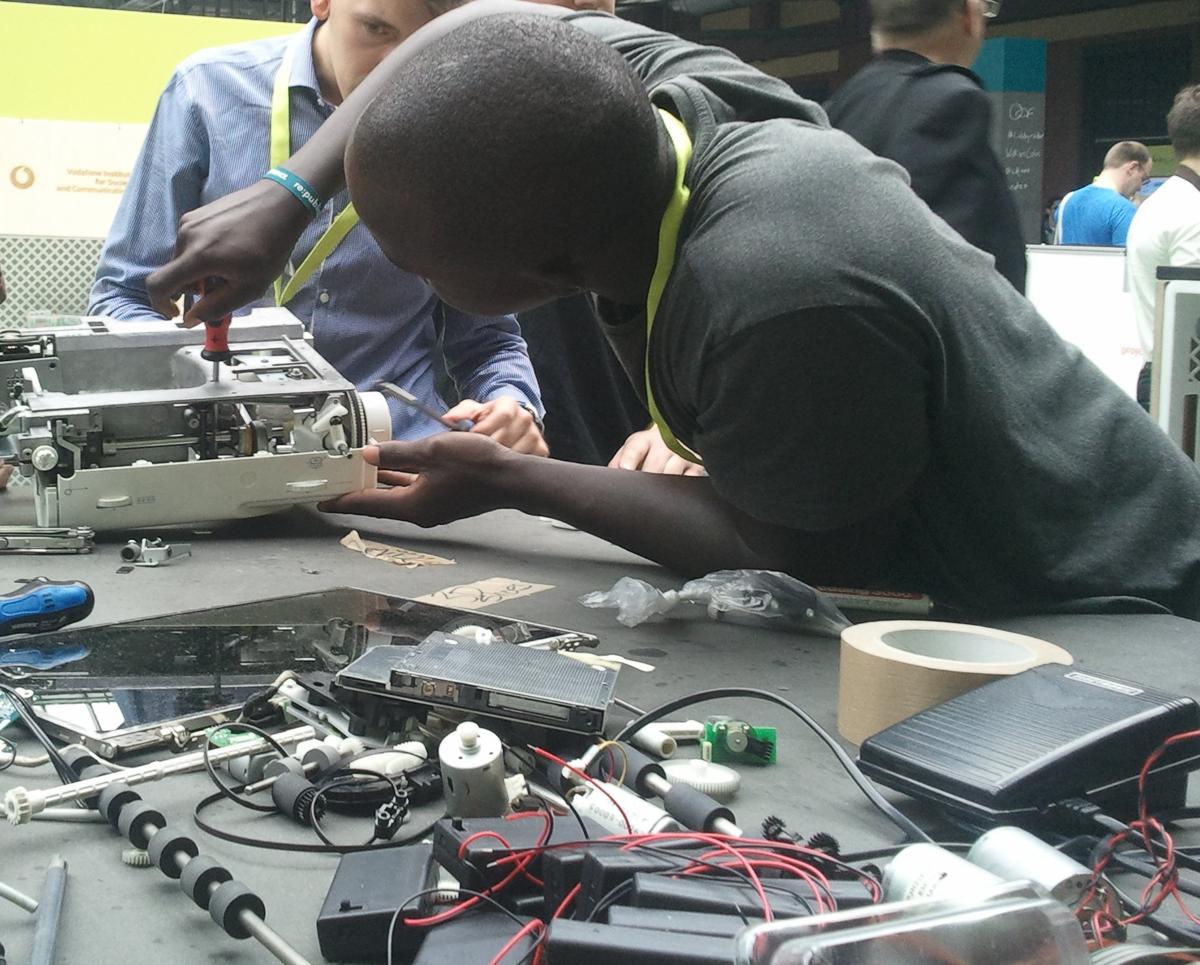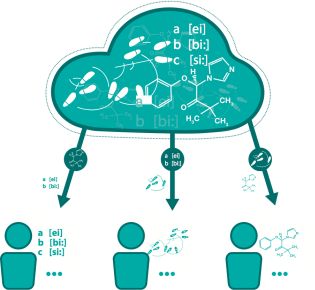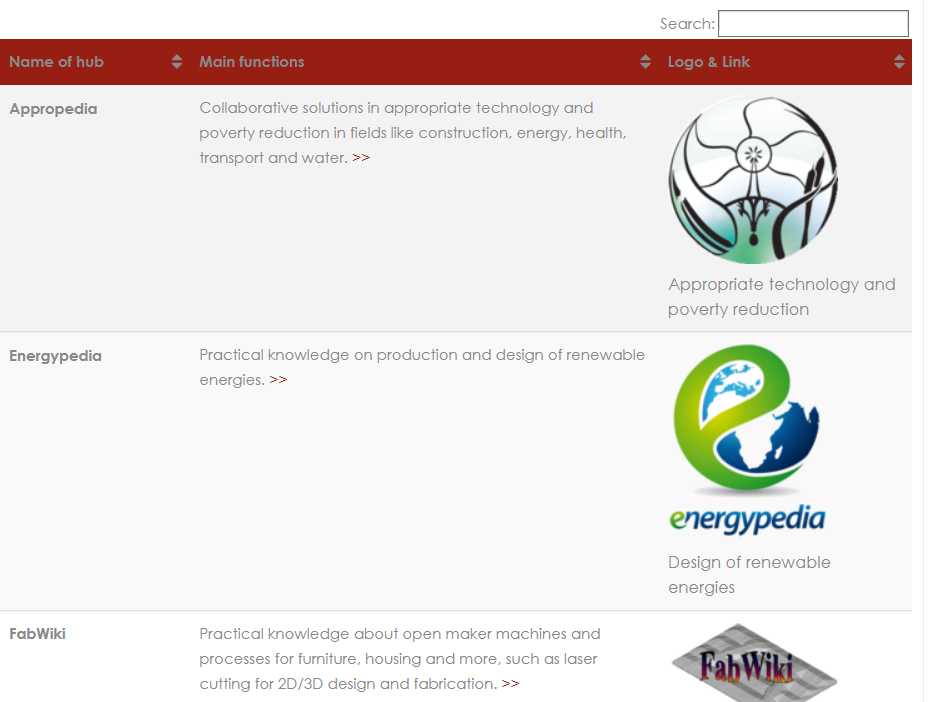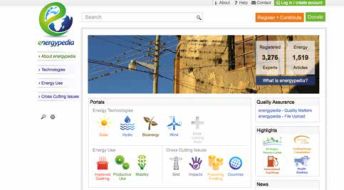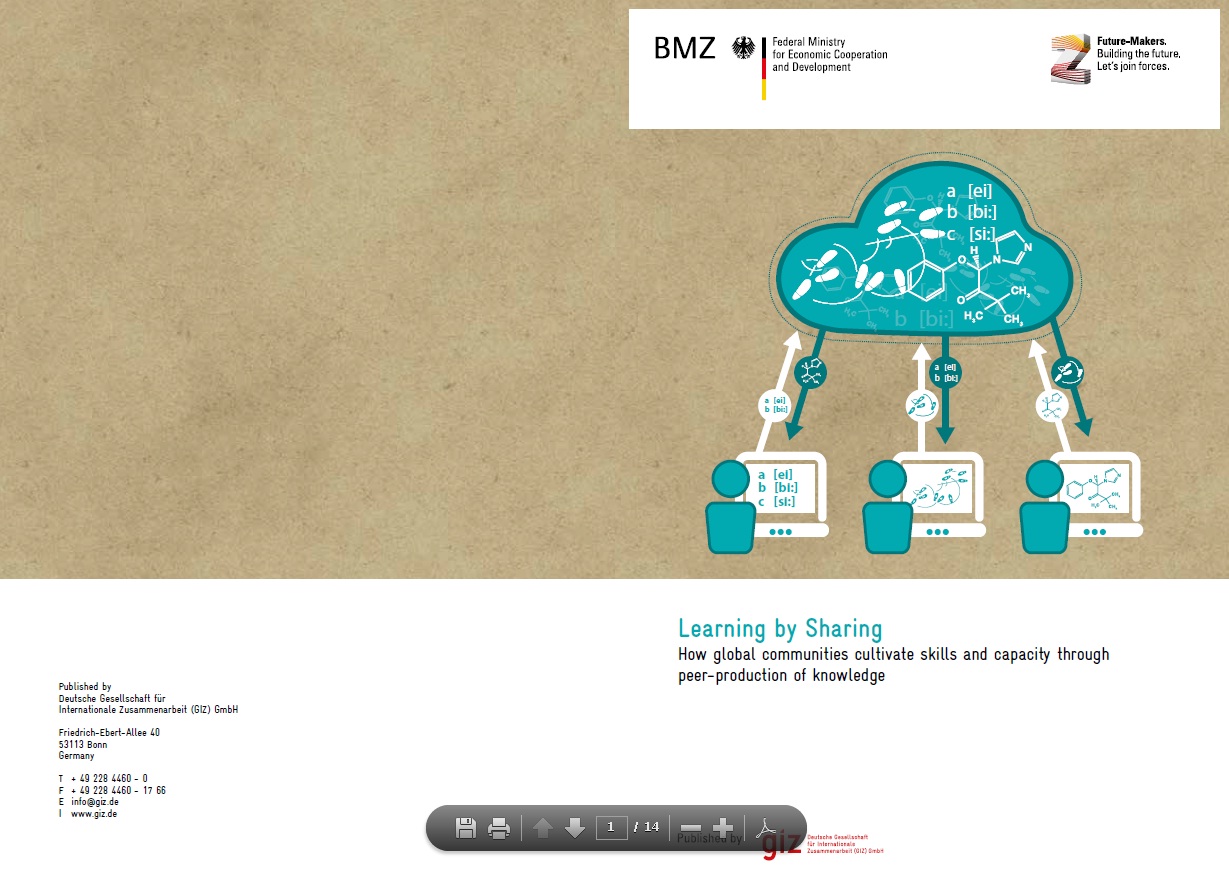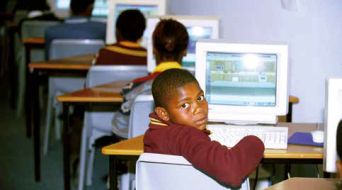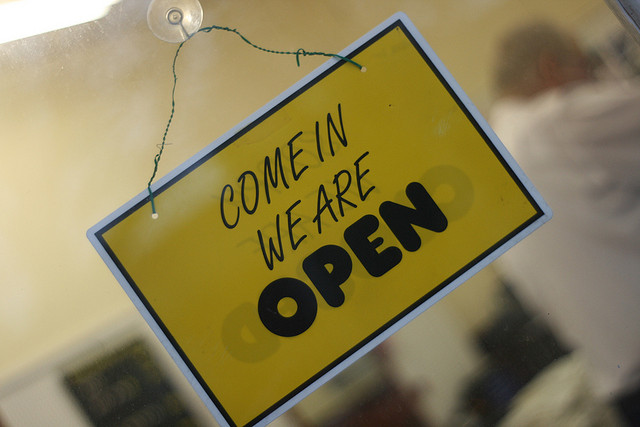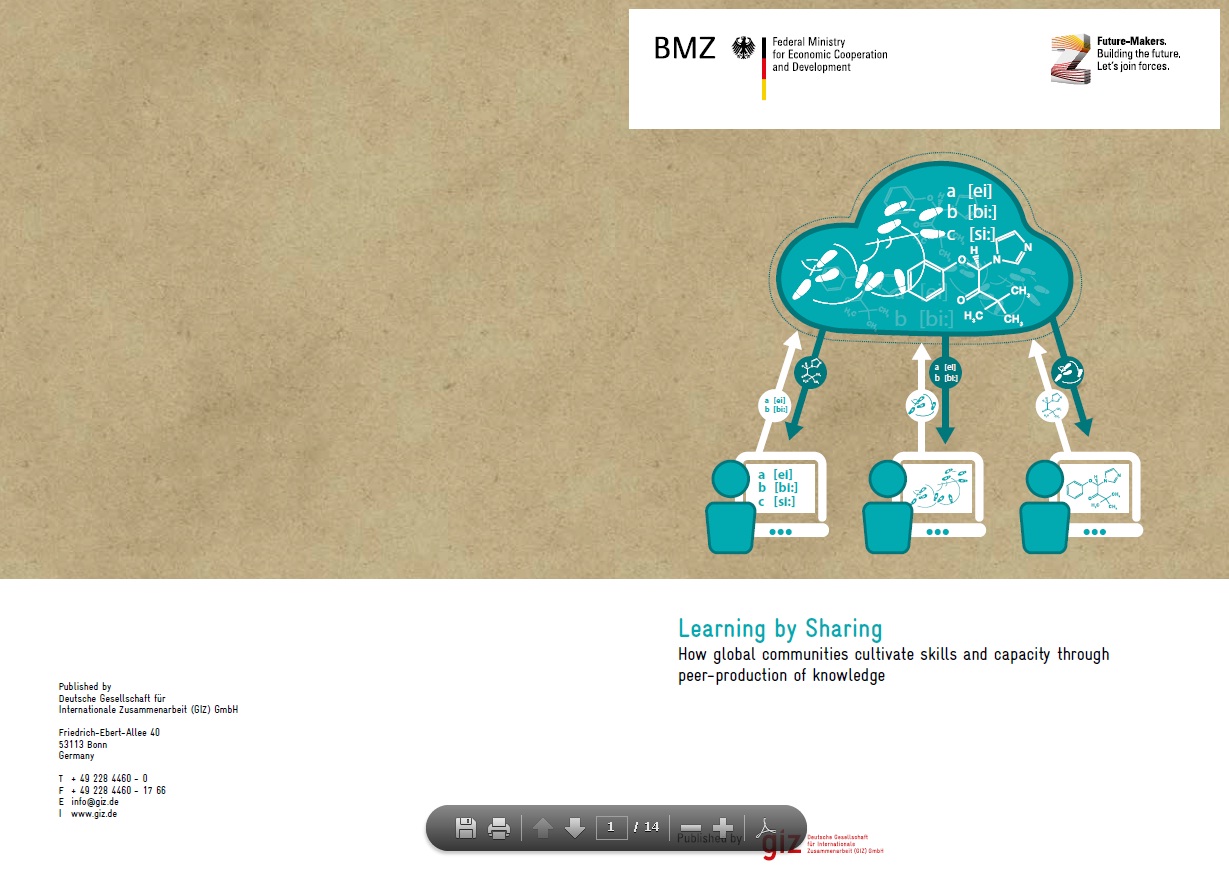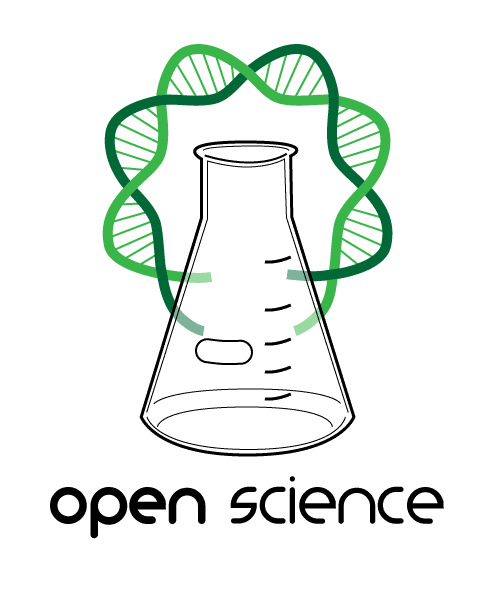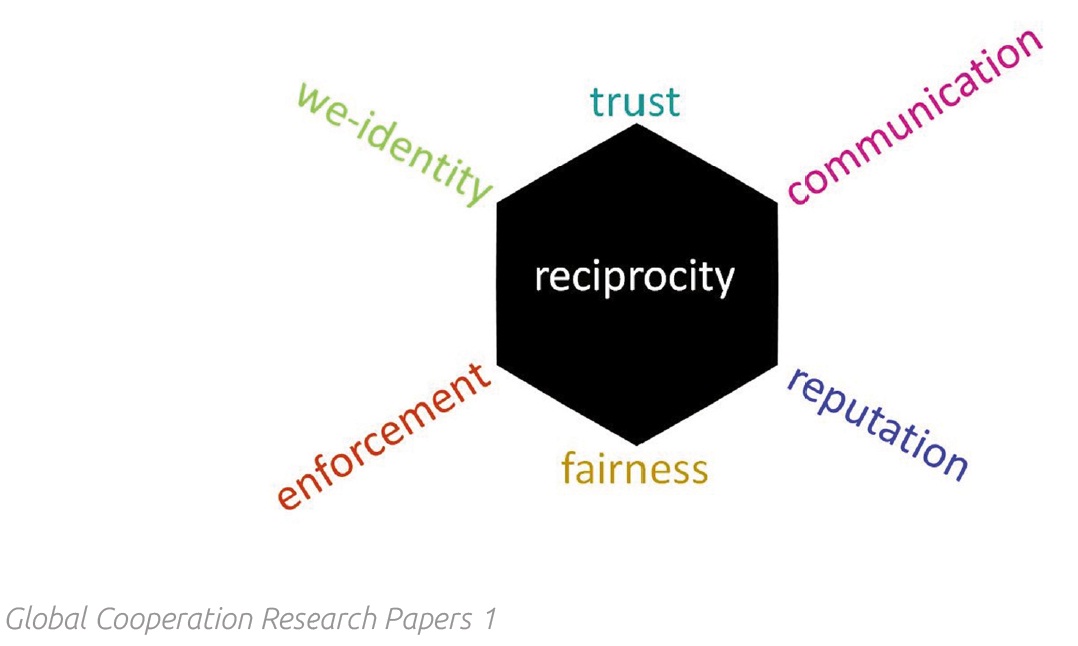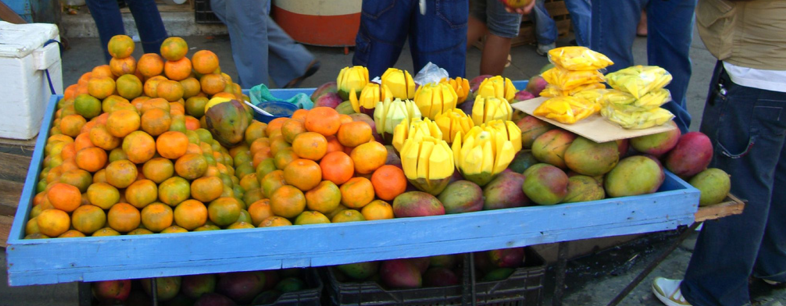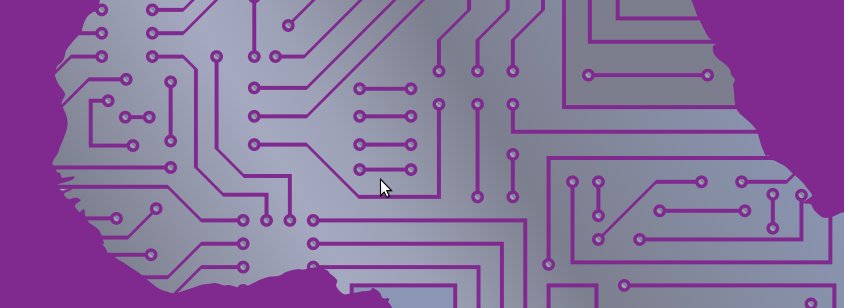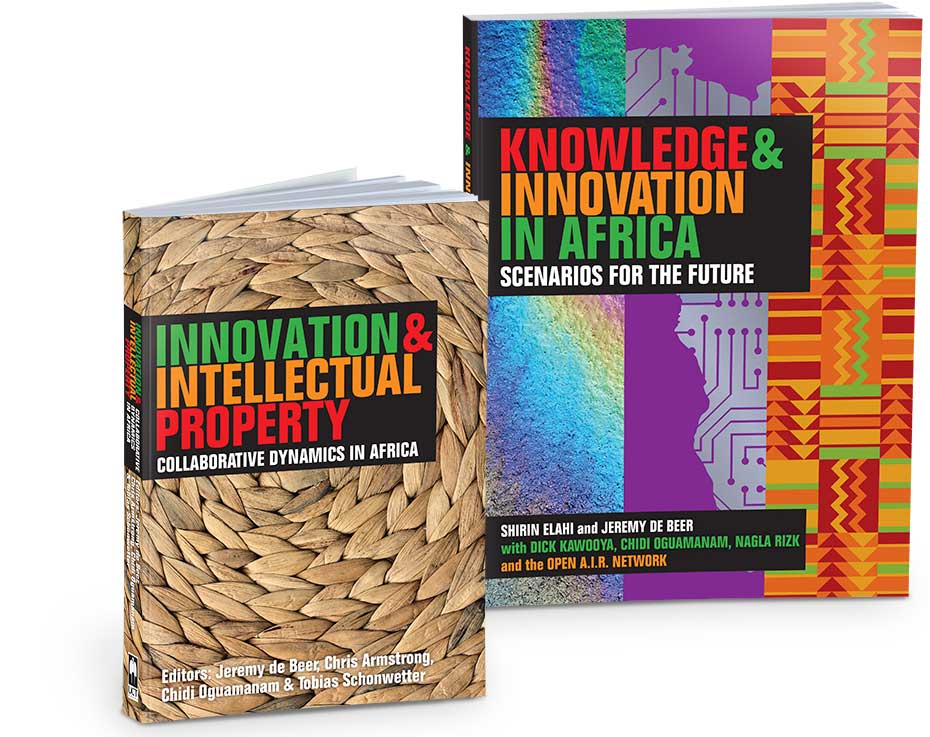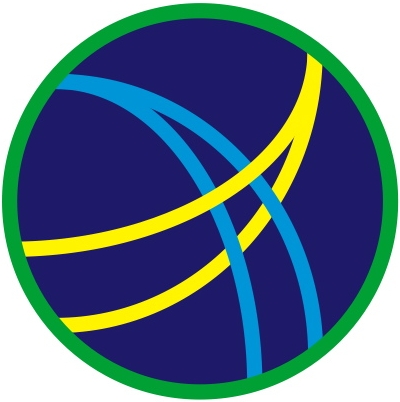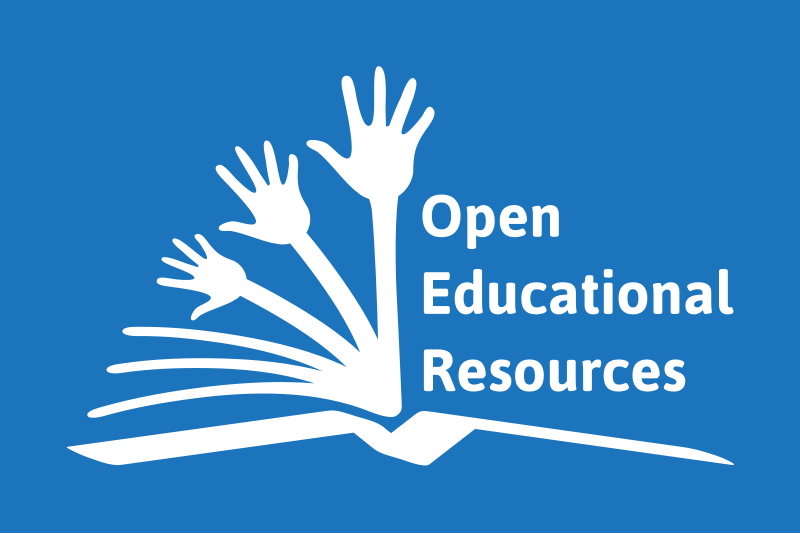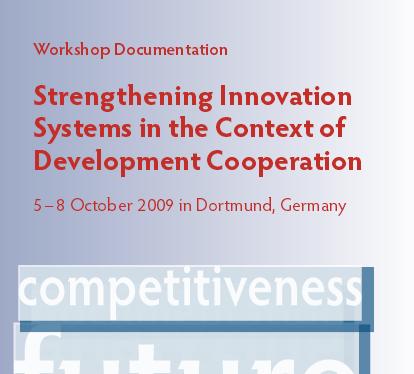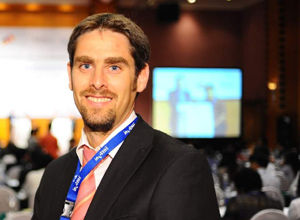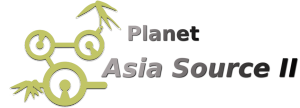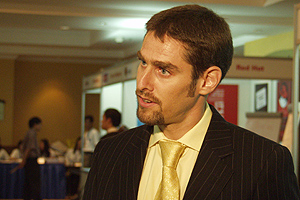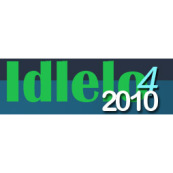 This biennium’s Idlelo (four) conference on Open Source and the Digital Commons in Africa organized by FOSSFA had the theme of “Development with ownership” and took place in Accra, Ghana from 17.04-21.04. Balthas Seibold was there to launch with FOSSFA a training book resulting of the joint regional capacity building programme “ict@innovation – creating business and learning opportunities in Free and Open Source Software”. The guide with the title “ict@innovation: Free your IT-Business in Africa!” compiles advanced training materials on African FOSS business models for small and medium enterprises in the IT-industry and brings together a wealth of examples and case studies of FOSS entrepreneurs from all across the African continent plus model presentations, assessment tests, exercises and assignments. Free download is available on the ict@innovation site. Balthas was also speaking on Idlelo’s panel on “Standards, Patents and Copyrights”, where he presented thoughts on the knowledge commons and copyleft licensing for open innovation (see agenda and news below). More information on ict@innovation is available at the the Africa and Open Source section of this website.
This biennium’s Idlelo (four) conference on Open Source and the Digital Commons in Africa organized by FOSSFA had the theme of “Development with ownership” and took place in Accra, Ghana from 17.04-21.04. Balthas Seibold was there to launch with FOSSFA a training book resulting of the joint regional capacity building programme “ict@innovation – creating business and learning opportunities in Free and Open Source Software”. The guide with the title “ict@innovation: Free your IT-Business in Africa!” compiles advanced training materials on African FOSS business models for small and medium enterprises in the IT-industry and brings together a wealth of examples and case studies of FOSS entrepreneurs from all across the African continent plus model presentations, assessment tests, exercises and assignments. Free download is available on the ict@innovation site. Balthas was also speaking on Idlelo’s panel on “Standards, Patents and Copyrights”, where he presented thoughts on the knowledge commons and copyleft licensing for open innovation (see agenda and news below). More information on ict@innovation is available at the the Africa and Open Source section of this website.
Freedom to innovate ! Article in D+C Journal
Germany’s international Development + Cooperation Journal just published an article by Balthas Seibold, which looks at open innovation and the knowledge commons in the framework of business development in developing countries. The piece argues, that innovation is key to private sector development, so stringent protection of intellectual property rights can hamper businesses in poor countries. To close the innovation divide, it makes sense to bank on open innovation and digital knowledge commons. Read the full article online at D+C or find more information and a pdf of the print edition within the publication section of this website.
Silang – the Philippines: Asia Source 3 Meeting Reinforces Asian Free and Open Source Software Movement
While most technology conferences happen as swanky, slick, and well-rehearsed events, the recently concluded Asia Source 3 took the opposite track and ran a camp that was spartan yet spontaneous. From November 7 to 12, 2009, Asia Source 3 gathered 150 representatives from Southeast Asia to discuss developments in open source. For those six days, the campers lived in a communal environment that married fun and relaxation with exchange of ideas. “We are honored to be part of this movement through our training and network program it@foss” said Balthas Seibold, Senior Project Manager of InWEnt. Asia Source 3 marked the official highlight of five years of regional FOSS support by InWEnt in Southeast Asia. InWEnt has trained and connected more than 1000 experts from Indonesia, Cambodia, Laos, Vietnam and the Philippines in more than 30 training courses under its it@foss program.
Check more about Asia Source III at http://www.asiasource3.net, meet Balthas at the online community of AS3, check the programme at the Camp Wiki, including an afternoon track session of Balthas Seibold on “From Open Source to Open Innovation / a brainstorming on open-everything”. Or learn more about InWEnt’s work in Asia.
Dortmund: Balthas Seibold speaks at seminar on “Strengthening Innovation Systems in the Context of Development Cooperation”
Innovation: What role for ICTs and for Open approaches? This has been a guiding question for a joint talk by gtz’s Thorsten Scherf and InWEnt’s Balthas Seibold at a symposium and seminar organized in Dortmund for gtz staff and other experts on innovation systems promotion. Balthas Seibold pointed out, how we might be moving from the Digital Divide to an Innovation Divide, how ICTs and „Open Innovation“ is linked to the example of Free and Open Source Software and what role the knowledge commons may play for innovation. For an overview of the seminar’s programm, see the Agenda, for details on the input, see the presentation slides.
Johannesburg: Balthas Seibold opens first regional course on Business and Open Source in South Africa
![]() How can Southern African IT-businesses make money with Free and Open Source Software? – this one of the questions discussed at the regional course on “Advanced African Business Models with Free and Open Source Software (FOSS)“. The two-week event started on July 13 at University of Witwatersrand, (Wits) in Johannesburg and is the first in a series of training-of-trainer (ToT) events in Southern and East Africa related to the programme “ict@innovation – – Creating Business and Learning Opportunities with Free and Open Source Software in Africa”. More on the course is online at the ict@innovation website, more on the programme, FOSS and Balthas’ work in Africa is in the section InWEnt: Africa & Open Source.
How can Southern African IT-businesses make money with Free and Open Source Software? – this one of the questions discussed at the regional course on “Advanced African Business Models with Free and Open Source Software (FOSS)“. The two-week event started on July 13 at University of Witwatersrand, (Wits) in Johannesburg and is the first in a series of training-of-trainer (ToT) events in Southern and East Africa related to the programme “ict@innovation – – Creating Business and Learning Opportunities with Free and Open Source Software in Africa”. More on the course is online at the ict@innovation website, more on the programme, FOSS and Balthas’ work in Africa is in the section InWEnt: Africa & Open Source.
From snowball to avalanche. Article on impact research published
And yet another publication to promote on this page. It’s published at the international magazine “D+C Development and Cooperation / E+Z Entwicklung und Zusammenarbeit 2009/01”, and it’s about impact measurement in development cooperation. In the article Balthas Seibold takes the ICT capacity-building project it@coops of InWEnt to illustrate that it makes sense to examine what works – and how as many people as possible can be reached. The article is online both in English and in German.
The global digital divide is an innovation and learning divide!
This article examines some of the ethical challenges and solutions related to the digital divide with a focus on how capacity building is crucial to bridge the different divides. The article is part of the volume “Internetökonomie und Ethik” (= The Economy of the Internet and Ethics) published by the renowed German editing house “Duncker & Humblot” in Berlin. In the article, Balthas Seibold postulates that from an ethical perspective, access to internet is not optional in developing countries and that four layers of Internet (physical layer, logical layer, content layer, learning layer) need to be kept open in order to allow for innovation and global digital equality (“Gütergerechtigkeit”). The article is online in German here: Publikationsseite.
Open Everything Berlin! Taking part in a global conversation about the art, science and spirit of ‘open’
Open Everything is a global conversation about the art, science and spirit of ‘open’. It gathers people using openness to create and improve software, education, media, philanthropy, architecture, neighbourhoods, workplaces and the society we live in: everything. It’s about thinking, doing and being open. Balthas Seibold took part in this global conversation at the 6th event taking place in Berlin. He spoke about “Open Development Cooperation through Capacity Building in Free and Open Source Software?”. The session discussed, how/if the principles of openness are resonating with some key principles of Development Cooperation in general and capacity-building support to initiatives in “Free and Open Source Software” in Asia in Africa in particular. More information: the presentation of Balthas Seibold / the Open Everything website / the Open Everything Berlin Wiki.
Drive for change! Balthas Seibold opens FOSS Bridge EU-Vietnam conferences in Hanoi
 More than 80 IT experts gathered on 14 November 2008 at “Drive for change”, a conference on Free and Open Source Software (FOSS) held at Horison Hotel in Hanoi, Vietnam. Carried out as part of the FOSS-Bridge EU-Vietnam initiative, the event was organized by InWEnt of Germany, INRIA of France, and the Institute of Information and Technology of Vietnam.
More than 80 IT experts gathered on 14 November 2008 at “Drive for change”, a conference on Free and Open Source Software (FOSS) held at Horison Hotel in Hanoi, Vietnam. Carried out as part of the FOSS-Bridge EU-Vietnam initiative, the event was organized by InWEnt of Germany, INRIA of France, and the Institute of Information and Technology of Vietnam.
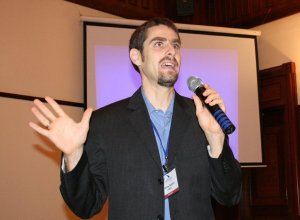
2009-2010 / Balthas Seibold presents at the first FOSS Bridge “EU-Vietnam” onference in Hanoi, Vietnam / Photo: Mario Behling for FOSS Bridge EU-Vietnam / CC-Licence, see source at https://secure.flickr.com/photos/fossbridge/2013873411/
“FOSS is about connecting people and businesses through knowledge. We are therefore most pleased to see that more and more players in Vietnam cross the bridge towards free and open source software”, stated organizers Vu The Binh of IOIT and Balthas Seibold of InWEnt. The conference was the culminating point of the initiative FOSS-Bridge EU-Vietnam, which has been promoting Southeast Asian software industries and cooperation with Europe through innovative collaboration on FOSS and business development since 2006.
Overall, the programme has brought together more than 50 IT-companies from Vietnam and Europe for matchmaking and twinning, and about 100 FOSS companies and organizations are registered in the online network at www.foss-bridge.org. FOSS Bridge EU-Vietnam has successfully prepared more than 20 Vietnamese IT-intermediaries and IT-SMEs to spread key knowledge on how to make business based on FOSS. More information: on the conference “Drive for change” / on FOSS Bridge EU-Vietnam in general / on previous key events such as the “High-Level Workshop on Open Source Requirements” (April 2008) and the “Second matchmaking, training and twinning workshop for European and Vietnamese FOSS businesses” (June 2008) / article on website of European commission.
Release of advanced e-learning courses on “Open Source & More IT for African Business”
InWEnt/it@ab releases a series of advanced e-learning courses on Information Technology (IT)- “Open Source & More IT for African Business” focussing on the needs of business related IT consultancy in Africa. The courses introduce relevant and adapted key concepts and applications such as E-Business Applications & Architecture / IT Security / Open Source IT (including lessons on Ubuntu Linux Installation, Multimedia, Web Server, Groupware, Network Printing) / Web Publishing / E-Learning as well as /Zope & the Collaborative Learning Environment CLE2. In the spirit of sharing and mutual capacity-building, this series of e-learning courses is released under a Creative Commons Attribution-Share Alike licence. We are therefore looking forward to seeing further distribution, remixing and updating of the courses that make up “Open Source & more IT for African Business”. The editing team included Benjamin Coester, Petra Hagemann, Balthas Seibold, Christiane Weber, and Kerstin Nolte . Test your IT-knowledge! Check the courses online (Update: since 2011 hosted on GIZ’s E-Academy).
Education for a free information society! Balthas Seibold on panel on “Free software & business models for IT companies”
 How can sustainable business models in Free Software grow local IT companies in Africa and worldwide? This was one of the main topics of an international panel discussion at the international conference “Free Knowledge Free Technology – Education for a free information society ” held in Barcelona, Spain from July 15 to July 17 2008. Balthas Seibold spoke about Sustainability in Development Cooperation and FOSS, emerging FOSS business models in Africa, Strategies for FOSS Market Segments as well as the future of FOSS Business Models in developing countries. During an intensive three day period, participants from the Philippines, Mexico, Tanzania, Germany, USA, and many other countries around the world, not excluding Spain itself, gathered around the Free Knowledge, Free Technology conference in Barcelona. The conference, organised by the SELF Project, focused on the production and sharing of free educational and training materials about the concept of Free Software. More information: Article on the conference / presentation of Balthas Seibold at the panel discussion on “Free software and business models for IT companies” / website of the conference SELF and the panel.
How can sustainable business models in Free Software grow local IT companies in Africa and worldwide? This was one of the main topics of an international panel discussion at the international conference “Free Knowledge Free Technology – Education for a free information society ” held in Barcelona, Spain from July 15 to July 17 2008. Balthas Seibold spoke about Sustainability in Development Cooperation and FOSS, emerging FOSS business models in Africa, Strategies for FOSS Market Segments as well as the future of FOSS Business Models in developing countries. During an intensive three day period, participants from the Philippines, Mexico, Tanzania, Germany, USA, and many other countries around the world, not excluding Spain itself, gathered around the Free Knowledge, Free Technology conference in Barcelona. The conference, organised by the SELF Project, focused on the production and sharing of free educational and training materials about the concept of Free Software. More information: Article on the conference / presentation of Balthas Seibold at the panel discussion on “Free software and business models for IT companies” / website of the conference SELF and the panel.
New compilation of training material on Open Source Business Models for Development online
The it@inwent team recently added a new section to their website. This sites provides an overview of InWEnt’s main capacity building programmes and trainings in the area of “FOSS Business Models and Sustainable Development” as well as its respective training materials. Co-Editor Balthas Seibold explains that “business models based on FOSS offer great potential for developing and transition countries as well, as the development and distribution of FOSS follows the principles of ownership, local value addition, empowerment and participation. Thereby, FOSS provides ample opportunities for the development of a local ICT economy, creation and transfer of ICT knowledge, legal use of software and access of poorer communities to ICTs.” The compilation is online at the it@inwent website. (Update: Link now goes to the site archived by the Internet Archive – last version of 2012).
Multi-year training programme on Open Source Software in Africa launched in Senegal
![]() Dakar – Balthas Seibold of InWent announced a new regional program called “ict@innovation” at the Pan-African Idlelo 3 Conference in Dakar on 17.03.2008. ict@innovation will focus on fostering small and medium-sized enterprises (SME) in the field of Free and Open Source Software through regional networking and strengthening of consulting capacities of ICT associations and training institutions in Southern and East Africa. Seibold stressed the potential of FOSS for the promotion of the private sector in Africa and an enabling environment for sustainable economic development, a focus of Germany’s cooperation through the BMZ. The theme of Idlelo 3 was “Making the Knowledge Economy Work for Africa”. Other speakers included Nnenna Nwakanma and Fatimata Seye-Sylla of FOSSFA, Ibrahima Niang (representative of Abou Salam Sall, UCAD’s Rector), Mohamed Tidiane Seck from ADIE, Bassirou Guissé, the Secretary General of the ministry of Infrastructure, Land Transportation and Telecoms for Senegal, Pierre Ouédraogo from OIF, and Lewis Rabkin, representing the South African Minister Geraldine Fraser Moleketi. More information is available in the official report / InWEnt’s press release (eng) / the presentation of Balthas Seibold (eng) and a / feature article on Idlelo3 (eng) , which appeared in the Linux Pro Magazine (eng).
Dakar – Balthas Seibold of InWent announced a new regional program called “ict@innovation” at the Pan-African Idlelo 3 Conference in Dakar on 17.03.2008. ict@innovation will focus on fostering small and medium-sized enterprises (SME) in the field of Free and Open Source Software through regional networking and strengthening of consulting capacities of ICT associations and training institutions in Southern and East Africa. Seibold stressed the potential of FOSS for the promotion of the private sector in Africa and an enabling environment for sustainable economic development, a focus of Germany’s cooperation through the BMZ. The theme of Idlelo 3 was “Making the Knowledge Economy Work for Africa”. Other speakers included Nnenna Nwakanma and Fatimata Seye-Sylla of FOSSFA, Ibrahima Niang (representative of Abou Salam Sall, UCAD’s Rector), Mohamed Tidiane Seck from ADIE, Bassirou Guissé, the Secretary General of the ministry of Infrastructure, Land Transportation and Telecoms for Senegal, Pierre Ouédraogo from OIF, and Lewis Rabkin, representing the South African Minister Geraldine Fraser Moleketi. More information is available in the official report / InWEnt’s press release (eng) / the presentation of Balthas Seibold (eng) and a / feature article on Idlelo3 (eng) , which appeared in the Linux Pro Magazine (eng).
Empowering Co-operatives in Southeast Asia through Information Technology
 Staff of co-operatives from Indonesia, Thailand, and Philippines who were trained as Information Technology (IT) Specialists by the “Information Technology for Southeast Asian Co-operatives (it@coops) Project” gathered together for the “Regional Forum on it@coops: Empowering Co-operatives through Information Technology” held November 19-21, 2007, Antipolo City, Philippines. The Project is implemented from 2004-2007 in co-ops affiliated to national co-op federations in the three countries that are members of AWCF.
Staff of co-operatives from Indonesia, Thailand, and Philippines who were trained as Information Technology (IT) Specialists by the “Information Technology for Southeast Asian Co-operatives (it@coops) Project” gathered together for the “Regional Forum on it@coops: Empowering Co-operatives through Information Technology” held November 19-21, 2007, Antipolo City, Philippines. The Project is implemented from 2004-2007 in co-ops affiliated to national co-op federations in the three countries that are members of AWCF.
Over 40 IT-companies cross FOSS Bridge between Europe and Vietnam
 Hanoi: A total of 42 agreements of cooperation were reached between Vietnamese and European business partners at the end of the first matchmaking event of the project “FOSS Bridge EU-Vietnam” for small and medium-sized IT enterprises in Hanoi, Vietnam. Satisfied by the success of the very first twinning event in the field of open source, the consortium is committed to bringing FOSS partners from Europe and Vietnam further together. Mr. Balthas Seibold, Senior Project Manager of InWEnt Capacity Building International, Germany comments: “I am amazed by the results of this workshop. Many companies actually signed multiple agreements, and large companies like Bull, MySQL, OTRS of Europe and CMC Soft, Vietsoftware of Vietnam are on board of FOSS Bridge.” Full press release / Programme and Presentations of the workshop (Update: Link is now to latest version of the site on the Internet Archive – dated December 2007).
Hanoi: A total of 42 agreements of cooperation were reached between Vietnamese and European business partners at the end of the first matchmaking event of the project “FOSS Bridge EU-Vietnam” for small and medium-sized IT enterprises in Hanoi, Vietnam. Satisfied by the success of the very first twinning event in the field of open source, the consortium is committed to bringing FOSS partners from Europe and Vietnam further together. Mr. Balthas Seibold, Senior Project Manager of InWEnt Capacity Building International, Germany comments: “I am amazed by the results of this workshop. Many companies actually signed multiple agreements, and large companies like Bull, MySQL, OTRS of Europe and CMC Soft, Vietsoftware of Vietnam are on board of FOSS Bridge.” Full press release / Programme and Presentations of the workshop (Update: Link is now to latest version of the site on the Internet Archive – dated December 2007).
